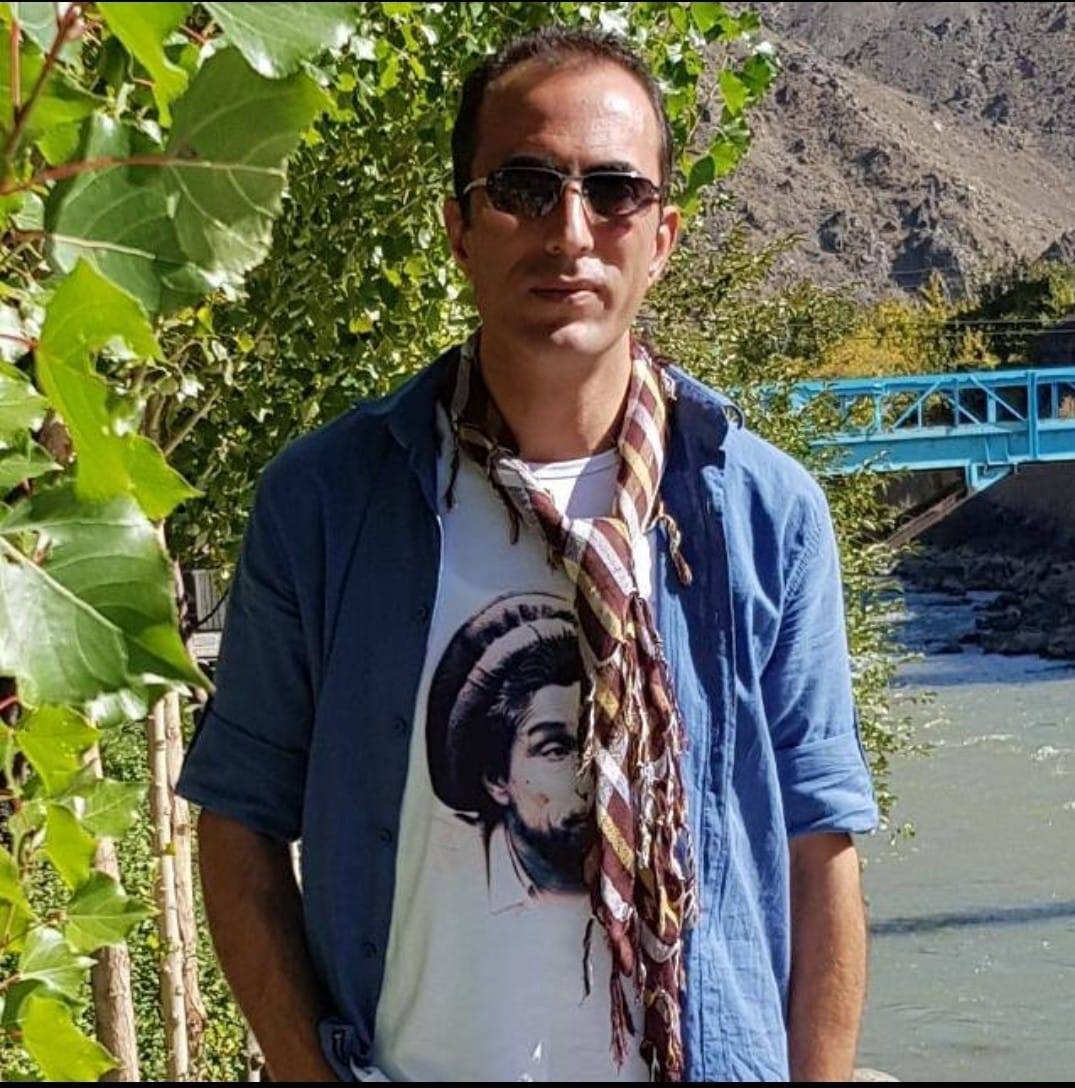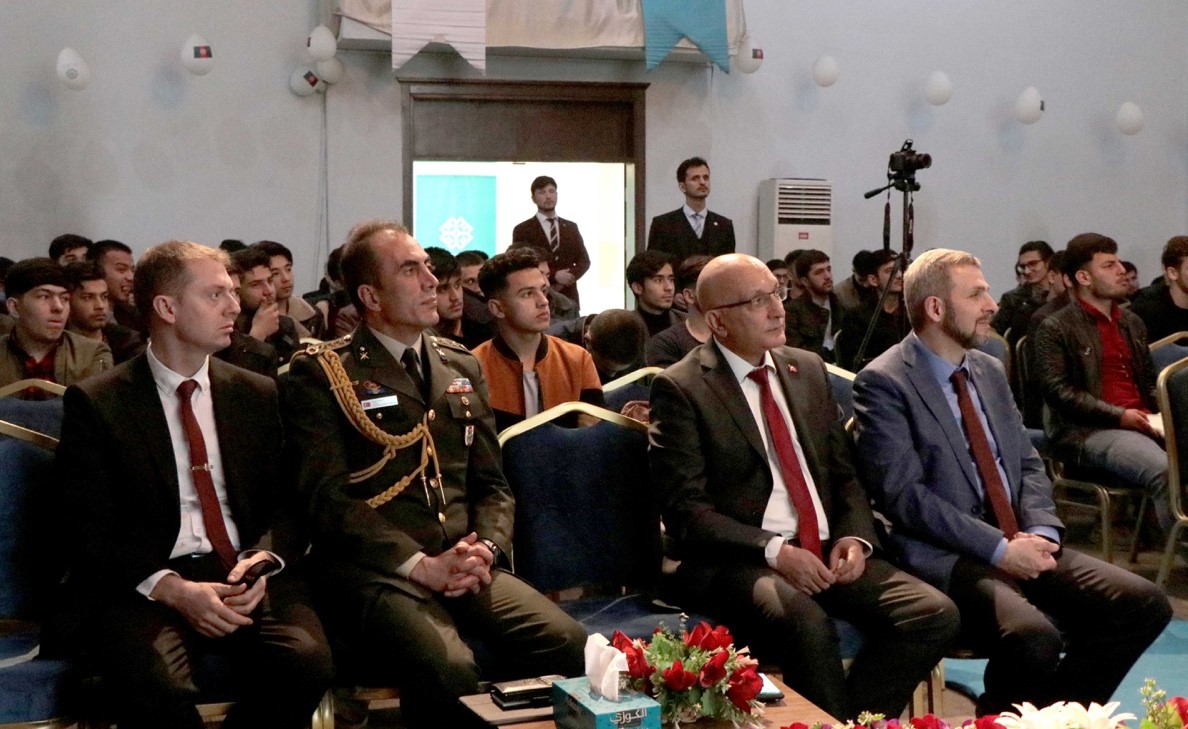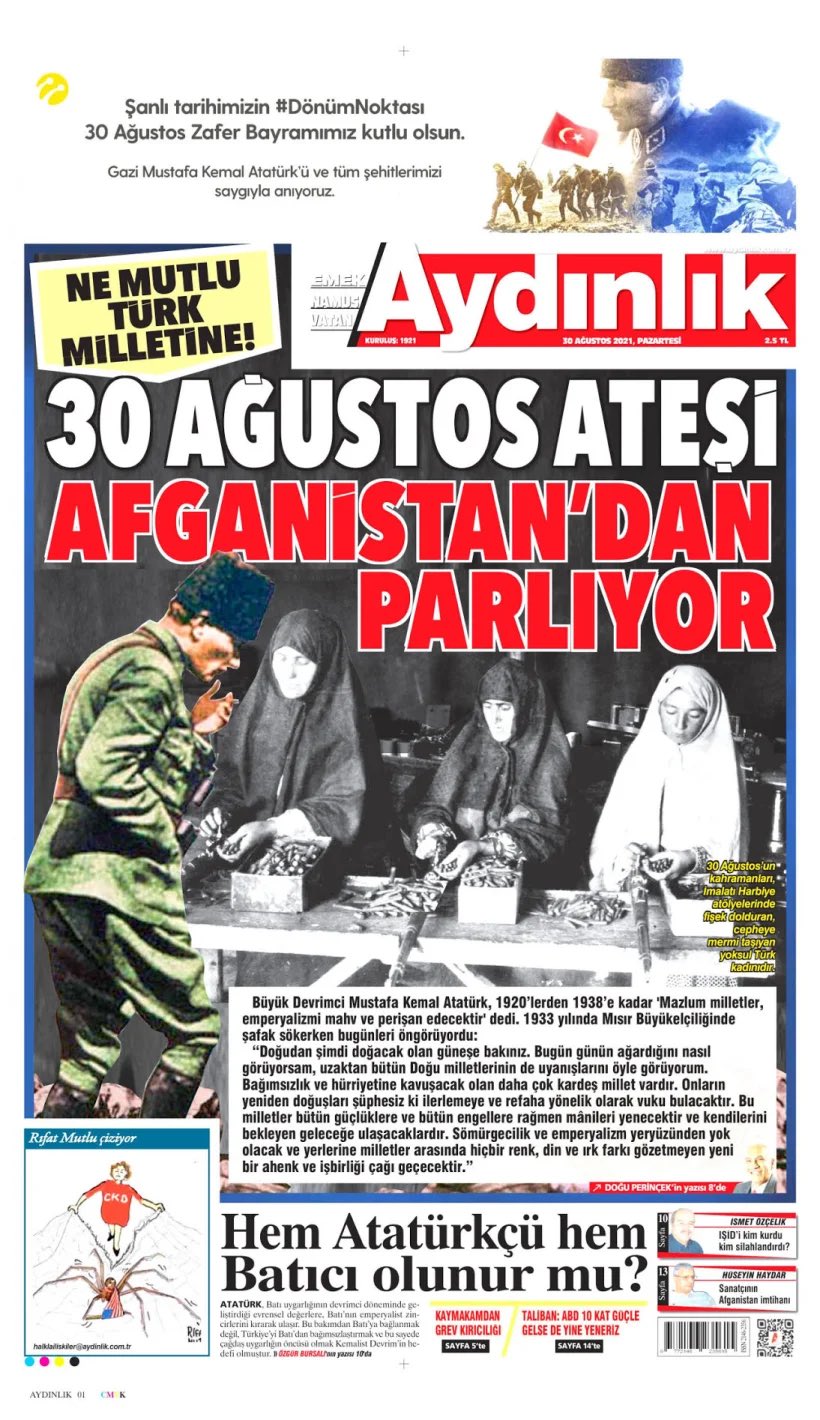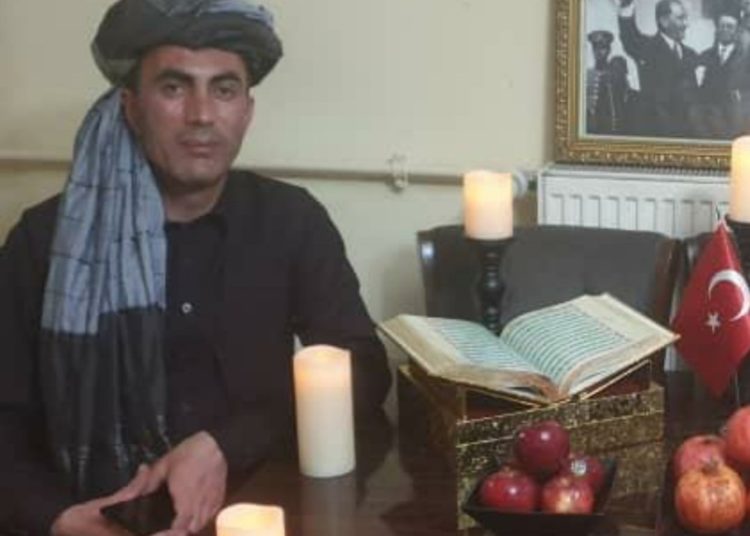Levent Kenez/Stockholm
A leaked photo shows Turkey’s military attaché in Afghanistan in local attire, with a Qur’an, the Muslim holy book, on the table and a photo of the founder of secular Turkey, Mustafa Kemal Atatürk, on the wall. The image not only describes the position of Turkey, which wants to be one of the key players in Afghanistan following the Taliban’s takeover but also gives clues about the new composition of the military staff under Islamist President Recep Tayyip Erdoğan.
Col. Sinan Uyar, the Turkish military attaché since 2020 who also served in the same capacity from 2016 to 2018, is among Turkish diplomatic staff who returned to the embassy in Kabul on August 27 after Turkish troops who were part of the NATO mission left the country, ending their 20-year presence.
Turkish officers have traditionally been cautious about being photographed with religious objects. They saw this as the end of their career in the military, which was presented as the guardian of secularism in the past. However, after Islamist leader Erdoğan increased his power over the military, thanks to the purge of pro-NATO and pro-Western officers following a coup attempt in 2016, a significant number of both low and high-ranking officers began to use religious and political symbols more frequently. For instance, during a Turkish military offensive in Syria, soldiers on the battlefield didn’t hesitate to make the gray wolf hand sign, which is identified with government ally the Nationalist Movement Party (MHP), and chant religious slogans. But at least at the present time, extreme actions aren’t necessarily tolerated. Rear Adm. Mehmet Sarı, who recently appeared in photos on social media wearing a turban and his military uniform, and thus sparking criticism, was involuntarily retired at the Supreme Military Council in August.
Military sources speaking to Nordic Monitor on condition of anonymity said it is unusual for a military attaché to be seen wearing this type of attire. They also dismissed security concerns because walking around in a uniform bearing the Turkish flag in Afghanistan actually provides the most safety given the fact that Turkey has historically had close relations with the Afghan people. The sources added that Turkish military intelligence reports claimed that officers from Western countries sometimes went on patrol with the Turkish flag on their uniforms as a precaution. Nordic Monitor has confirmed that the photo posted by former colonel and military attaché Halis Tunç on Twitter was taken after the Taliban’s takeover of the country in August. The photograph of Atatürk and Amanullah Khan, the king of Afghanistan from 1919 until his abdication in 1929, on the wall, which is half-visible in the controversial image, is frequently hung on the walls of Turkish representations in Afghanistan, strengthening the possibility that the picture of Uyar was taken in Afghanistan.

However, Uyar needs to change his wardrobe in the new Afghanistan. In a photo posted on November 26, 2020 on his Facebook page, he is seen wearing a T-shirt with a likeness of Ahmad Massoud, the current number one enemy of the Taliban and leader of the National Resistance Front. Uyar’s clothing choices definitely show he likes to give messages with his physical appearance as well as how changeable Turkey’s Afghanistan policy is.
The striking image, of course, needs to be interpreted together with Erdoğan’s previous statements in which he sent warm messages to the Taliban, saying, “Turkey has nothing against the Taliban’s ideology, and since we aren’t in conflict with the Taliban’s beliefs, I believe we can better discuss and agree with them on issues.” It’s no secret that Erdoğan insisted on Turkey’s military presence in Afghanistan to gain international recognition and appreciation as the actor that secured and reopened the Kabul airport to international air traffic. Erdoğan’s messages, which caused controversy in Turkey, could not prevent the withdrawal of Turkish troops from Afghanistan; however, Turkey’s initiatives for possible cooperation in the operation of the airport are still very much alive. Although not officially confirmed by the Taliban, Ankara claimed the new regime wanted technical support from Turkey in running the airport and that talks would likely reach a positive result. It was leaked that Turkey and Qatar were negotiating with the Taliban for the reopening of the airport and that Turkey could be the party to ensure security if agreed. According to rumors circulating in Ankara, the Turkish military will not return to Kabul, but SADAT, a private military contractor and paramilitary unit loyal to Erdoğan, will serve in Afghanistan. SADAT previously took part in military operations in Libya and Syria including the relocation of foreign mercenaries to these countries.

As a side note, supporters of the Erdoğan government from different parts of the political spectrum welcomed the victory of the Taliban. Doğu Perinçek, Erdoğan’s neo-nationalist (Ulusalcı) ally and the leader of the Homeland Party (Vatan Partisi), likened the Taliban’s retaking of power in Afghanistan to Turkey’s War of Independence in the 1920s and claimed that the Taliban had won a great victory against imperialists like Atatürk. The women’s organization affiliated with his party, the Republican Women’s Association, also issued a statement claiming that the return of the Taliban was a positive development for Afghan women.

Nordic monitor last week reported that clerics supported by the Turkish government who are influential over the ruling party’s grass roots expressed their strong support for the brutal Taliban, another example of Turkey’s increasing radicalization.












